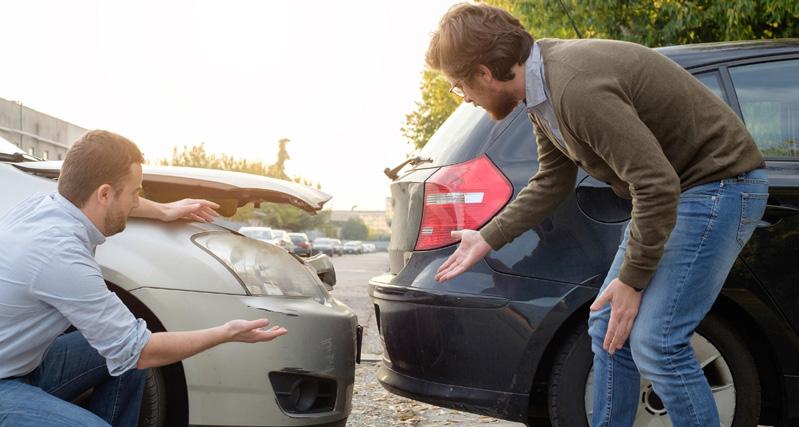
3 minute read
Fender benders in Germany: What to do
Nadine Bower, U.S. Army Garrison Wiesbaden Public Affairs. Photo by tommaso79/Shutterstock
It happens so fast! Your bumper scrapes another car while you are trying to fit your American-sized vehicle into a tiny German parking spot. What next? Do you act like nothing happened, because you’re sure that nobody saw it, or do you wait around, risking that it may take hours for the owner of the damaged vehicle to appear? Do you leave a note on the other car, because you have an urgent appointment to get to?
“The worst thing you can do is to drive off,” said Birthe Fink, Police Senior Inspector with the Westhessen Police Directorate, 4th Precinct. “Driving off without notifying the German Police, the U.S. Military Police or the owner of the damaged vehicle is a criminal offense and can be punished with a monetary fine, depending on the circumstances a prison sentence.”

Even if the damage is very minor and if you cannot find the owner of the vehicle, you should call the local German police, and they will let you know what to do. “Here in Wiesbaden, you can call the non-emergency number of the police, which is 0611- 3450 and they will notify the responsible precinct,” Fink said. However, if you don’t have this number handy, Fink emphasized that it is never wrong to call the emergency line, “110.“
In most cases, the police will send a vehicle to check out the damage, but sometimes they might just ask you for your information and the details of the accident and allow you to leave. However, if you do not speak German or if the police operator on the phone does not speak enough English, you can also call your local U.S. Military Police station.
“It is very important that you actively try to report the accident either to the German police or to the MPs,“ Fink said. “The MPs will establish the connection to the German Polizei.“ Looking for witnesses and documenting their names and contact information can also help.

Important documents that you should always have with you besides your driver’s license are your vehicle registration and your vehicle inspection paperwork, said Rick Dutkiewicz, Deputy Director of the USAG Wiesbaden Directorate of Emergency Services.
“U.S Forces drivers should also carry the Army in Europe Form 190-1Y with their registration,” he said. “This single-page form provides drivers with basic instructions of what to do if involved in a traffic accident and has a place to fill in local emergency numbers.
If leaving Germany, drivers should also carry their green proof of insurance cards provided by their insurance company.” AER 190-1, para 4-7 b also states that drivers must report the accident to the MP or SF within 72 hours.

“This will help drivers if they have to appear in court and when insurance companies need information,” Dutkiewicz said.
Accidents of any kind always have to be reported to the German police and the U.S. Military Police. However, when you are involved in an accident, make sure you properly secure the accident site, so that you or others are not in danger. When there is only minor damage, move your vehicle to the side after taking detailed pictures of the accident.
In all cases, drivers and passengers must wear reflective vests and move to the side of the road in a safe location. “The driver must turn on their hazard lights and place their warning triangle 200 meters behind the vehicle on the Autobahn or 100 meters behind their vehicle on all other roads,” Dutkiewicz explained. “Also keep in mind that German law requires everyone on and near the scene to help the injured to the best of their abilities.”
Always make sure that you have the emergency phone number of the German police (Polizei) and the U.S. Military Police programmed in your phone and call them - even when in doubt.


